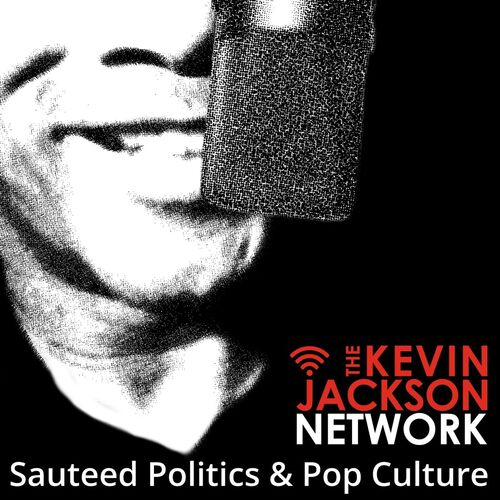
The Not-so-Smooth Transition - Ep 24-509
Episode · 0 Play
Episode · 40:40 · Dec 31, 2024
About
[SEGMENT 1-1] Transition time 1 Joe Biden pardoned 37 death row prisoners. “Make no mistake: I condemn these murderers, grieve for the victims of their despicable acts, and ache for all the families who have suffered unimaginable and irreparable loss,” Biden’s statement said. “But guided by my conscience and my experience as a public defender, chairman of the Senate Judiciary Committee, vice president, and now president, I am more convinced than ever that we must stop the use of the death penalty at the federal level.” “These are among the worst killers in the world and this abhorrent decision by Joe Biden is a slap in the face to the victims, their families, and their loved ones.” said Trump spokesman Steven Cheung. “President Trump stands for the rule of law, which will return when he is back in the White House after he was elected with a massive mandate from the American people.” I agree wholeheartedly that we need to shorten the transition period, particularly in light of what’s happening today. The prolonged lame-duck phase has outlived its usefulness, and in its current form, it’s a breeding ground for mischief, as Guy Ciarrocchi eloquently points out. [SEGMENT 1-2] Transition time 2 There are serious issues that need to be addressed, and Joe Biden is in no condition to do so. But even if he were, is it his job? In most places in the world, after the election ends, the new party takes over then and there. But not here. Why? Another bill Biden signed will strip lawmakers of their taxpayer-funded pensions if convicted of using their office to commit corruption-related offenses. Congress passed the bipartisan No Corruption Act in the wake of ex-Sen. Bob Menendez‘s (D-NJ) bribery scandal. The legislation addresses a “loophole” in current law that allows lawmakers to receive pensions as long as their case is going through the courts. Guy Ciarrocchi wrote: The world has changed. Life has changed. Politics has changed. It is time to change the 20th Amendment of our Constitution. January 20th is too long to wait for a new president. [SEGMENT 1-3] Transition time 3 It doesn’t happen in nature, in that when a group of lions takes over a pride, deposing the old guard, they don’t have a transition period. I understand why it’s supposedly done. Because we are not animals. We want things to continue to operate properly for the nation, blah blah blah. https://www.cnn.com/2020/11/17/opinions/terrible-presidential-transitions-hurt-america-balcerski/index.html The election of 1860 provoked a serious challenge to presidential transition. In November, Lincoln won sufficient votes in the Electoral College to beat three challengers and secure a term as president. One month later, South Carolina gathered a statewide convention and unanimously voted to secede from the Union. Soon thereafter, six more southern states followed suit. Lame duck President Buchanan poorly managed the developing crisis. He announced himself against southern secession, yet he also believed the government powerless to prevent the action. Instead, Buchanan looked to Congress for a solution. A gathering of “old gentlemen” in Washington, DC, yielded a series of appeasement measures, known as the Crittenden Compromise, which aimed to protect slavery by constitutional provision. But President-elect Lincoln wisely refused to accept any compromise emanating from the unpopular Buchanan administration. On Inauguration Day, Lincoln called on Buchanan at the White House, and the two men rode together in an open carriage to the Capitol. Despite a conciliatory inaugural address, war erupted when Confederate forces fired on Fort Sumter in April 1861. The new Republican Congress was furious with Buchanan’s actions during the lame duck period. They took away the franking privilege for ex-presidents (thus requiring them to affix their own postage) – and even declined to pay for Buchanan’s official portrait. Buchanan defended his actions on the “eve of rebellion” in what historians consider the first presidential memoir, but he failed to rehabilitate his reputation. For his inaction as the Union fell apart around him, he is routinely ranked the worst president in American history. (…) By 1932, the Great Depression had plunged the American economy to new lows. Confidence had been lost in the banking system, farmers could find no market for their crops and unemployment reached nearly 25%. In November, Roosevelt’s promise of a government-sponsored New Deal handily defeated Hoover’s campaign for cooperative voluntarism among private individuals. The day after Election Day, at 9:34 p.m., Hoover begrudgingly conceded by telegram, writing: “In the common purpose of all of us, I shall dedicate myself to every possible helpful effort.” But, in reality, Hoover did everything in his power to stand in the way of Roosevelt’s New Deal. In effect, Hoover wanted Roosevelt to renounce portions of the New Deal, like his public works programs, before taking office. In turn, Roosevelt refused to collaborate in any way with the outgoing president. In the meantime, the effects of the Great Depression only worsened. On Inauguration Day, Hoover and Roosevelt shared a tense ride from the White House to the Capitol, with Roosevelt making small talk about the impressive preparations along the parade route. Mercifully, the extended lame-duck period, designed for an era when Americans traveled by horse or sail, was nearing its end. In Become a supporter of this podcast: https://www.spreaker.com/podcast/the-kevin-jackson-show--2896352/support.
40m 40s · Dec 31, 2024
© 2024 Spreaker (OG)